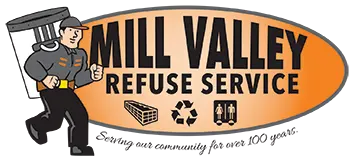MVRS at the Tiburon Wine Festival
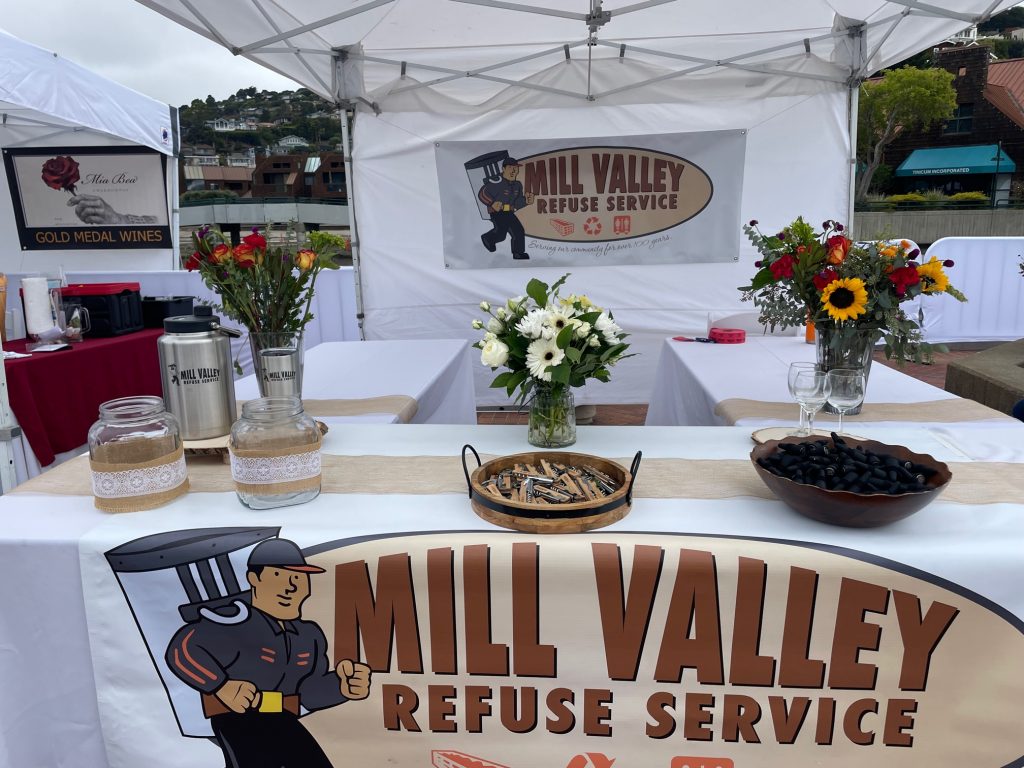
We had the privilege of partnering the Tiburon Wine Festival on October 1 , 2022. A big thank you to the Tiburon Chamber of Commerce for letting us be a part of this special event.
California’s New Compost Law
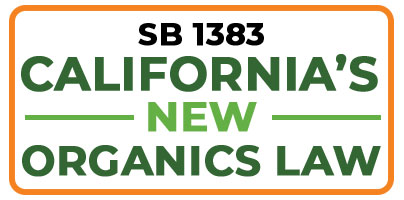
The following flier about California’s new organics law was sent to all Mill Valley Refuse Service customers in April of 2022. To learn more about what organic materials belong in your compost cart and how to compost right, visit the the following pages on our website: Residential Compost Commercial Compost Apartment (multifamily units) Compost For […]
SB 1383 Announcement to Customers
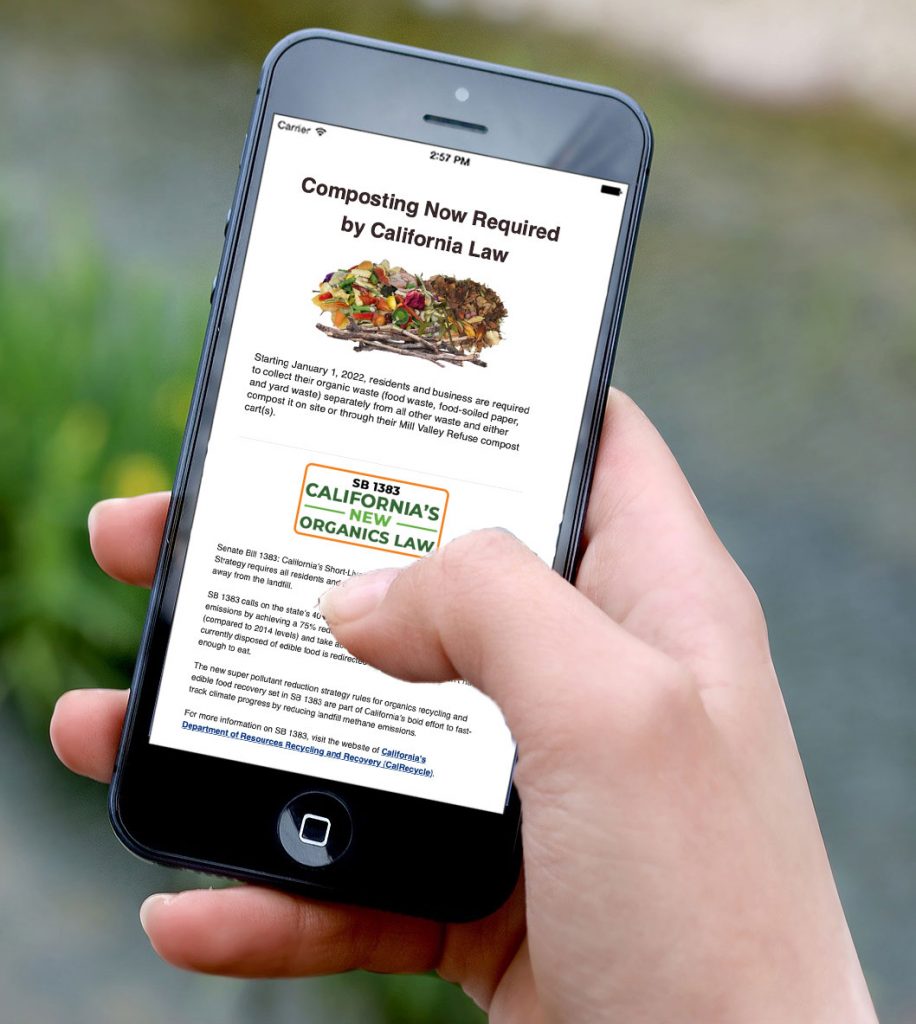
On January 31, 2022 the following information was sent in an email to all of our customers about the new compost requirements in California. Para español, use la herramienta de traducción en la parte superior de la página. Composting Now Required by California Law Starting January 1, 2022, residents and business are required to collect […]
10 Ways to Reduce Food Waste
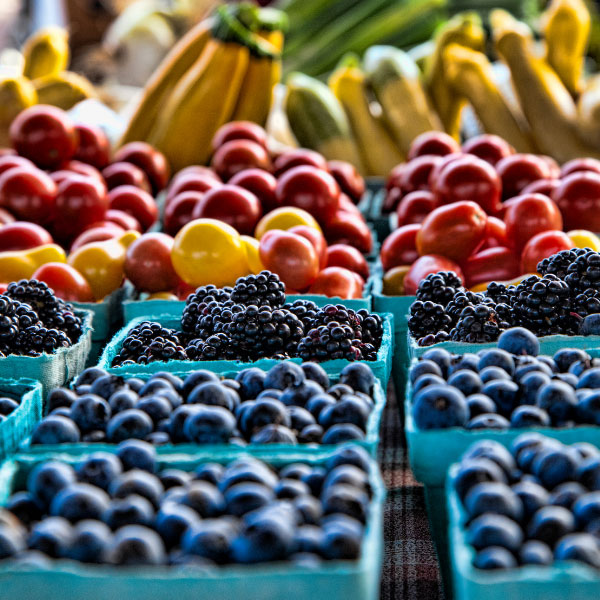
1. COMPOST IT If you aren’t set up for backyard composting, or self hauling, it’s important that you utilize your curbside compost service. In fact, it’s now the law. When organic waste is sent to landfill, it decomposes anaerobically (without oxygen) which creates methane a short-lived climate pollutant and one of the most potent greenhouse […]
New California Organics Law
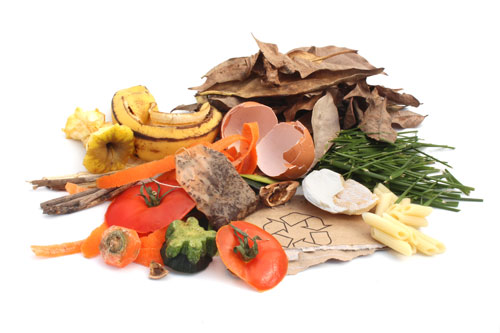
CALIFORNIA TO REQUIRE FOOD WASTE COMPOSTING TO LOWER EMISSIONS & COMBAT CLIMATE CHANGE Beginning January 2022, California’s short lived climate pollutant law (SB 1383) requires that every home, apartment complex, and commercial business in California collect their food waste, food-soiled paper, and yard waste separately from all other waste. SB 1383 calls on the state’s 40 […]
PODCAST: Your Food Scraps Must Turn Into Compost By 2022, Says California Law
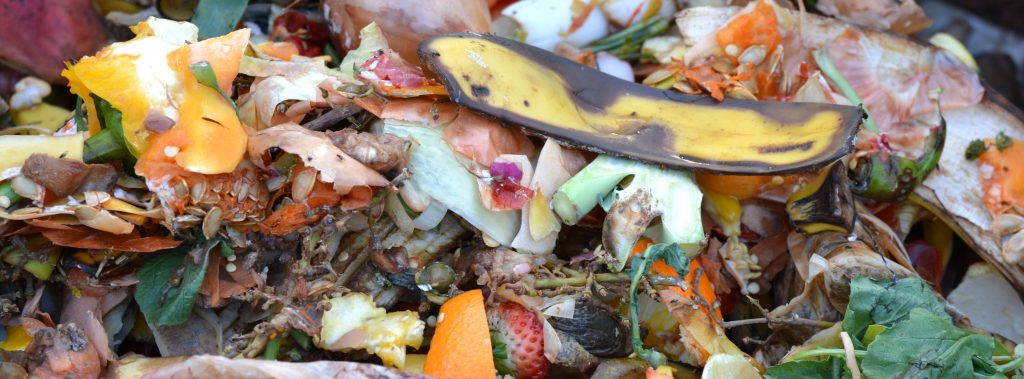
Rising levels of greenhouse gases in the Earth’s atmosphere are causing a climate crises. When short-lived climate pollutants like organic waste (food scraps, food-soiled-paper, and yard waste) end up in landfill, they break down anaerobically which generates methane, a greenhouse gas super pollutant 84 times more potent than carbon dioxide. In California, landfills are the […]
Experts Provide 30 Fixes for California Recycling System
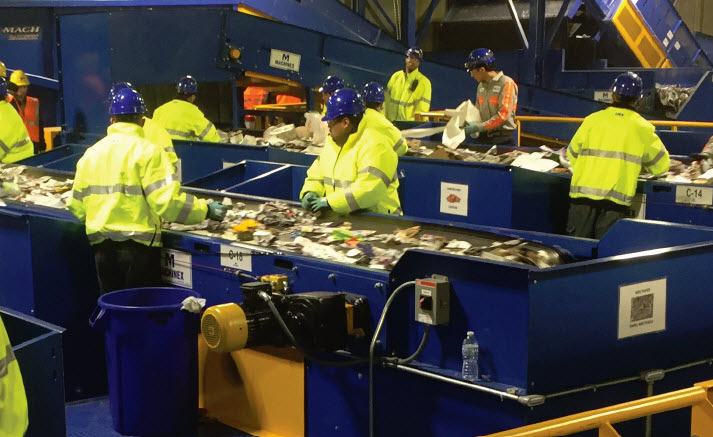
In June 2021, California’s Statewide Commission on Recycling Markets & Curbside Recycling released their first Annual Report with 30 policy recommendations to help improve the state’s troubled recycling system. The Report, which has been delivered to California legislators and regulators, includes recommended policies to increase markets, and reduce contamination and costs in the recycling system. […]
Recycling Is a Trip!

Have you ever wondered what happens with all the bottles, cans and paper in the recycling cart? Why trash in recycling is a problem? Or what’s even better than recycling? Meet Dave the Recycling Fairy, the star of Zero Waste Marin’s latest videos for young people and their families. Packed with whoa-worthy facts and cool […]
Help Mill Valley Launch a Reusable Lending-cup Program to End Single-use Waste
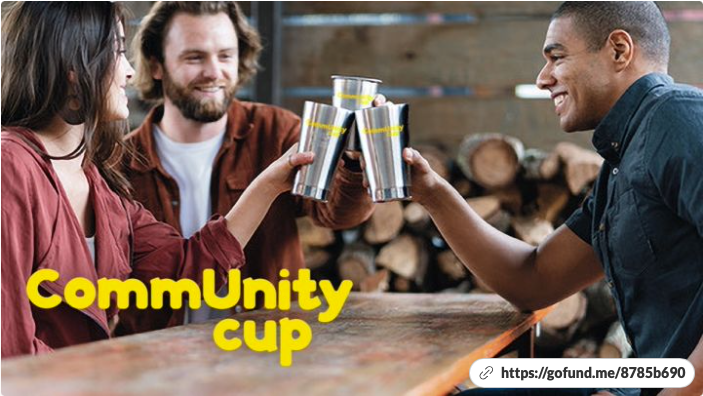
Single-use cups have a massive impact on our environment. Every year, Americans alone use 58 billion single use cups. That’s 20 million trees. 6.8 million tons of CO2. 12 billion gallons of water. 15 billion pounds of carbon. Plastics made from fossil fuels are a global health hazard. And our throw-away society disproportionately impacts low-income […]
Lose Single-Use, Choose ReUseful!
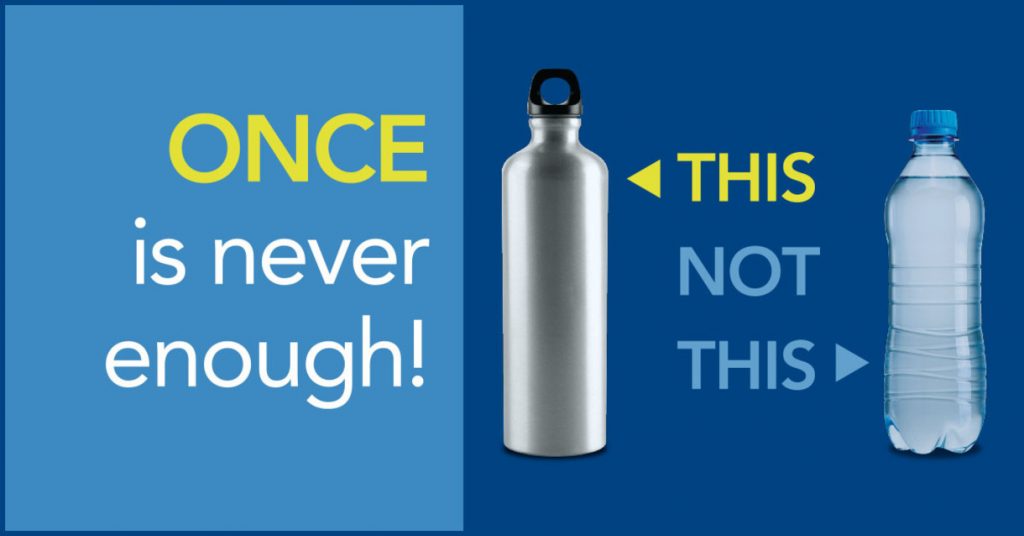
There are better alternatives to single use plastic! Nowadays, there are a whole lot of items – such as plastic bottles, utensils and wrap – that are designed to be used once and then thrown “away.” That may feel convenient, but there is a long-term cost. Many items cannot be recycled easily and those that […]
